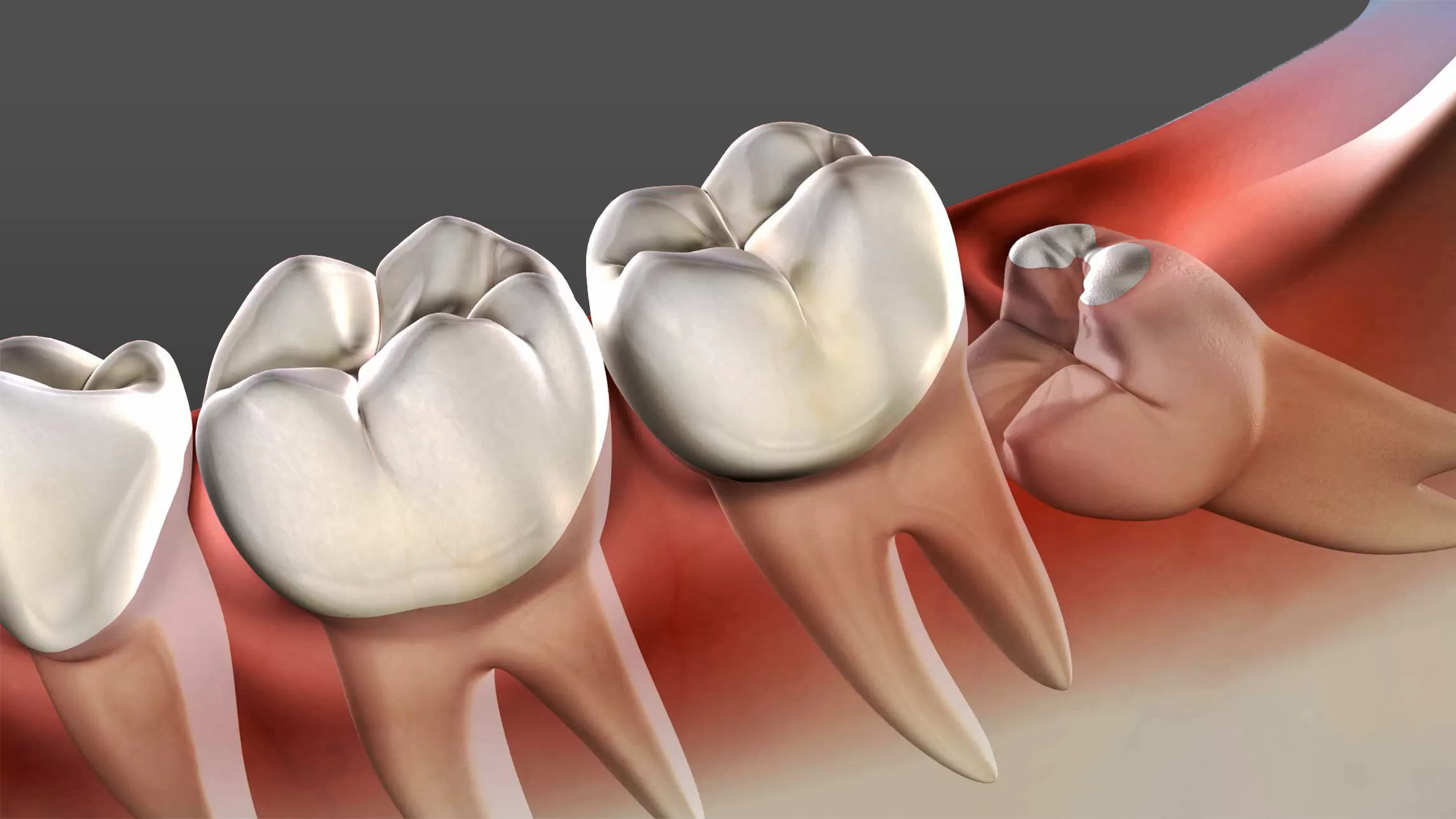Table of Contents
The Basics of Wisdom Teeth
Wisdom teeth, also known as third molars, are the last teeth to develop and emerge in the mouth. Typically, they appear between the ages of 17 and 25. While some people have no issues with their wisdom teeth, many experience problems that require removal.
Why Wisdom Teeth Often Need Removal
- Impaction: Wisdom teeth may not have enough room to grow properly, leading to partial eruption or becoming trapped beneath the gum and bone.
- Misalignment: They can grow at various angles, potentially causing damage to adjacent teeth.
- Overcrowding: In smaller jaws, wisdom teeth can push other teeth out of alignment.
- Decay and gum disease: Due to their location, wisdom teeth are often harder to clean, increasing the risk of oral health issues.
Signs You May Need Wisdom Teeth Removal
- Pain or discomfort in the back of the mouth
- Swelling of the gums or jaw
- Difficulty opening your mouth
- Bad breath or an unpleasant taste in your mouth
- Visible signs of infection around the gum line
If you experience any of these symptoms, it’s essential to consult with a dental professional for an evaluation.
The Extraction Process
Pre-Procedure Preparation
Before the extraction, your dentist or oral surgeon will:
- Take X-rays to determine the position of your wisdom teeth
- Discuss anesthesia options
- Provide pre-operative instructions
During the Procedure
The extraction process typically involves:
- Administering anesthesia
- Making an incision in the gum tissue to expose the tooth and bone
- Removing any bone blocking access to the tooth root
- Dividing the tooth into sections if necessary
- Removing the tooth
- Cleaning the site and stitching the wound closed if needed
Post-Procedure Care
After the extraction, you’ll receive instructions for proper care, which may include:
- Applying ice to reduce swelling
- Taking prescribed pain medication
- Avoiding certain foods and activities
- Proper cleaning techniques for the extraction site
Potential Complications and How to Avoid Them
While wisdom teeth removal is a common procedure, there are potential risks:
- Dry socket
- Infection
- Damage to nearby teeth or nerves
- Sinus problems (for upper wisdom teeth)
To minimize these risks:
- Follow all pre and post-operative instructions carefully
- Maintain good oral hygiene
- Attend all follow-up appointments
- Contact your dental professional if you experience unusual symptoms
Recovery Timeline
| Time Period | Expected Progress |
| 24 hours | Initial healing begins, blood clot forms |
| 3-4 days | Swelling and discomfort should start to subside |
| 1 week | Stitches typically dissolve or are removed |
| 2 weeks | Most normal activities can be resumed |
| 3-4 weeks | Soft tissue healing is usually complete |
Choosing the Right Professional for Your Procedure
Selecting a qualified professional for your wisdom teeth removal is crucial. Consider the following factors:
- Experience and qualifications
- Technology and techniques used
- Patient reviews and testimonials
- Comfort level with the practitioner
For those seeking wisdom teeth removal Las Vegas offers numerous experienced professionals who can provide expert care throughout the extraction process.
Cost Considerations
The cost of wisdom teeth removal can vary based on several factors:
- Number of teeth being removed
- Complexity of the extraction
- Type of anesthesia used
- Geographic location
- Insurance coverage
It’s important to discuss costs and payment options with your dental provider before the procedure.
Alternatives to Extraction
In some cases, alternatives to extraction may be considered:
- Monitoring: If wisdom teeth are healthy and properly positioned, your dentist may recommend regular check-ups to ensure they remain problem-free.
- Orthodontic treatment: In certain situations, orthodontic procedures might create space for wisdom teeth to emerge correctly.
- Coronectomy: This procedure involves removing the crown of the tooth while leaving the roots intact, which may be recommended if there’s a high risk of nerve damage.
Long-Term Benefits of Wisdom Teeth Removal
Removing problematic wisdom teeth can provide several long-term benefits:
- Reduced risk of oral health issues
- Prevention of overcrowding and misalignment of other teeth
- Easier maintenance of oral hygiene
- Elimination of pain and discomfort associated with impacted wisdom teeth
Preparing for Your Consultation
When meeting with your dental professional to discuss wisdom teeth removal, come prepared with:
- A list of questions or concerns
- Your complete medical history
- Information about any medications or supplements you’re taking
- Your insurance information
Final Thoughts
Wisdom teeth removal, while common, is a significant dental procedure that requires careful consideration and preparation. By understanding the process, potential risks, and recovery expectations, you can confidently approach the procedure. Consult a qualified dental professional to determine the best course of action for your situation.
According to this dentist in Decatur TX, discussing your oral health history and any specific concerns with your dentist before the procedure can provide valuable insights into your unique needs. Additionally, following a personalized aftercare plan can ensure a smoother recovery and help prevent complications, such as infection or dry socket, promoting optimal healing
